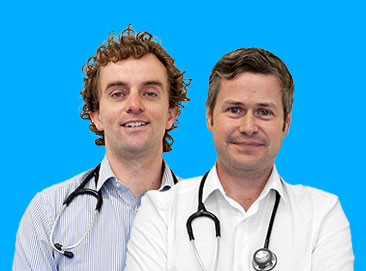If you are thinking of becoming a GP partner then one key consideration is how much it costs to buy into a GP partnership. In this blog we set out the top ten areas you need to consider and the questions you need answering.
Invest in your financial wellbeing today and ensure a brighter, more secure future. Click here and find the course that unlocks your financial confidence!
Firstly, though, why does it cost anything? GP partnerships are independent contractor businesses which means they have to fund costs such as staff, premises and other running costs out of the income they earn. Like any business they therefore need a cash float to pay out expenses before the income arrives. They also need to buy in stocks of some drugs, medical consumables and drugs. This is known as working capital. In addition, some practices own their own property and new partners may need to buy into a share of that. So investment by partners is essential for the business to operate.
-
Is there a fixed value to buy into the working capital?
The simple answer is “no” as it will depend on a few factors. The bigger the practice, the larger the working capital that is needed as expenses are higher. The number of partners also influence the amount an individual pays in. You can have identical practices in size with a working capital of £100,000: one may have 4 partners with an investment need of £25,000 but the other practice may have three with an investment need of £33,333. It is therefore a consideration when looking at replacing partners with salaried staff as that will increase the investment needed by the remaining partners.
Dispensing practices also will have a higher investment as their working capital will also need to cover the dispensary.
-
Do I have to pay in all in one go to cover the working capital?
How long you have to pay in for will depend on negotiations with your new partners. Most though would not expect full payment on day one and usually this is discussed with the practice accountants, to come to a fair compromise, over a period which is affordable to the incoming partner. Usually, the buy in is transacted by a reduction in the amount drawn by the incoming partner over that period so that funds are retained in the practice.
-
The practice has a property – how is it valued?
Any property will need to be valued by an expert medical specialist valuer. Usually, they would value this on the basis of the property remaining as medical premises, but they will take into account the age and condition of the premises as well as local factors. The valuation will also consider the rental streams that the practice receives through owning the premises. These can be from within the NHS but also potentially with third party tenants. Banks when lending will also need to have sight of the relevant valuations to ensure they are not lending beyond the value of the premises so it is worth ensuring that any valuation covers both the buy in and also the bank’s needs.
-
Are GP property investments a good thing?
An investment in a GP property must be considered in the medium to long term and you would not expect to make a sizeable return on your investment within the first few years. By buying into the property you will then be allocated a share of the rent that is received and, usually, by far the biggest amount is a reimbursement based on market value from the NHS. So long as the partnership continues to occupy the building as a GP practice then the rent will continue and as such (unlike a buy to let property) you have a long term rental income stream backed by the government. This is why investment in GP premises is attractive to property companies. By owning their own property the partners also then have control over how space is utilized and have the opportunity to rent out unused space to external tenants such as pharmacies. If the property is valued correctly then you would expect in the opening years after any investment that the rent received should, in the main, cover the interest costs of borrowing; and as time goes on you would hope that the rent improves so that you end up in a position where there is a surplus between the rent and the outgoings on the loan.
-
Are there any downsides to buying into a property?
Any property investments are not without risk. As with any investment that is backed by borrowings, valuations can reduce in the future. In addition, interest rates could rise on the borrowings so that the amount being paid out exceeds the rent coming in. Incoming partners also need the practice to consider future changes in the partnership to avoid situations such as last man standing scenarios which may put the ownership risk onto younger partners.
-
Do I need to fund a deposit like I would with a residential property?
The good news is that most medical specialist lenders will not require a deposit and are happy to lend up to 100% of the valuation. Usually, partners are not required therefore to fund deposits.
-
Will I be required at any point to put more money in?
Any initial buy in to either the working capital or the property will reflect the ownership at the time you buy in. If the partnership structure changes in the future then there may be a requirement to invest more, or take out larger loans, if your share in the partnership changes. The same principles set out above will apply at any change and you should consider the cost of buying a bigger share compared with the benefits you receive back through continuing to be a partner in the practice.
-
Do I ever get my money back?
Any investment in the working capital will be repaid to you at the point you leave the partnership based on the value of that investment as set out in the practice accounts. In addition, when you leave, if you are required to sell your share in the premises you would expect it to be valued in the same way as when you bought-in, and amounts due to you would be based on this less any outstanding share you have in practice loans.
-
What legal issues do I need to cover?
It is important that the buy-in is documented through an update to the partnership agreement. That agreement will also set out the terms for when someone leaves and the period they can expect to get their money out of the business.
In relation to the property, it is also very important that the legal title of the property is in the name of the new partners. Too often this is forgotten, and the partnership transacts the buy-in and the buy-out of leaving partners without changing the legal title. This leads to complications down the line when more borrowing may be needed, or the property is sold.
-
Are there any other tips to buy-ins?
Buy-ins to the working capital are the same for any business and this is not unique to general practice. Every business has a requirement to fund working capital and you should view this as an investment for the long term where you get your money back when you leave.
Property investments have also tended to be a good investment for partners over the long term, given the rents and valuations have in the past increased, which gives you a good return on your initial investment. As with any investment, risk needs to be considered and we would always recommend you take professional advice from the combination of a medical specialist surveyor, accountant and lawyer as this is a significant investment you are making.
Join 30,000 doctors and receive free, exclusive, financial CPD for doctors in your inbox.
Medics’ Money is run by doctors and finance experts, for doctors. Our free financial CPD gives you all the knowledge you need to take control of your finances.









